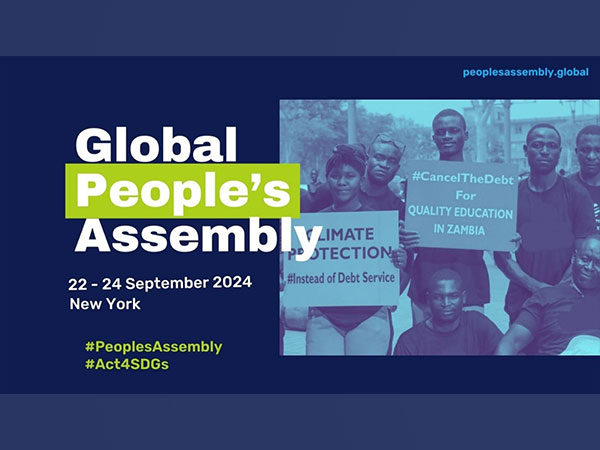Global People's Assembly Calls for Radical Change at UN Summit
At the UN Summit of the Future, civil society groups and marginalized community leaders held a parallel Global People's Assembly. Over 400 activists demanded solutions addressing global injustice, with pleas for debt cancellation, social protection, and climate justice.

- Country:
- United States
World leaders converged at the UN Summit of the Future on September 22-23 to draft a new international consensus. Concurrently, civil society groups and representatives of marginalized communities held the Global People's Assembly opposite the UN headquarters, calling for meaningful reforms to tackle global injustices.
More than 400 activists attended the fifth edition of the assembly, which followed 30 regional and national-level gatherings. Laxman Gadia, from the indigenous Gadia Lohar community in Rajasthan, India, shared his struggles against harassment and economic deprivation. This assembly, organized by the Global Call to Action Against Poverty (GCAP) and 52 civil society networks, sought actionable solutions to man-made crises and promoted a people-centered approach to governance.
Debt justice emerged as a critical issue, with activists highlighting the burdens on Latin America, Africa, and Asia. Mae Buenaventura of the Asian People's Movement emphasized the inadequacy of current relief measures and demanded unconditional debt cancellation. GCAP's Arjun Bhattarai called for urgent changes in the global financial architecture to fund universal social protection, underscoring the need for a feminist-economic perspective.
The assembly also spotlighted the impacts of global conflicts and climate crises. Climate justice and international cooperation were identified as vital for addressing these challenges. Dr. Mithika Mwenda of the Pan African Climate Justice Alliance stressed the necessity of financial support for vulnerable communities. The increasing wave of anti-NGO laws was also a concern, with calls for accountability from those suppressing civil society voices.
(With inputs from agencies.)










